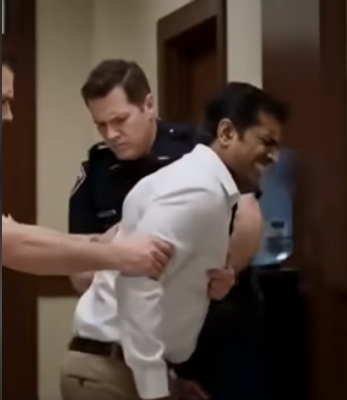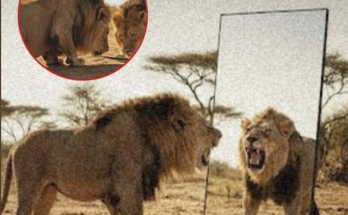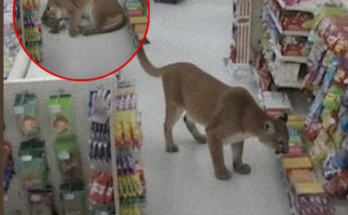He was just dropping off some papers. Map in one hand, phone in the other, calling to get the gate code. Next thing I know, I hear yelling from the hallway—loud, urgent—and I open the door to see two cops shoving him face-first into the wall.
He was struggling to breathe, trying to tell them my name.
Apartment 4C! Call her! Please!”
They didn’t listen. Said he looked “out of place.” Said someone reported a “trespasser” with a backpack.
I told them—calmly at first—that he was my delivery driver. That I was about to receive some documents. That he’d done nothing wrong.
They ignored me. One of them actually told me to “stay back.”
But here’s the thing. I don’t stay back.
Not when someone’s rights are getting steamrolled right in front of me.
I asked for badge numbers. They hesitated. I asked again—louder this time—and told them the exact laws they were breaking.
They ignored me. One of them actually told me to “stay back.”
But here’s the thing. I don’t stay back.
Not when someone’s rights are getting steamrolled right in front of me.
I asked for badge numbers. They hesitated. I asked again—louder this time—and told them the exact laws they were breaking.
You could see it in their faces. A flicker of oh shit.
But even after they un-cuffed him, they didn’t say sorry. Didn’t ask if he was okay. Just mumbled something about “procedure” and walked off like nothing happened.
They had no clue what was coming next
Because while they were walking away like it was any other Tuesday, I had already pulled out my phone and hit record.
Not the tail end of the event—no. I’d started recording right after they grabbed him. Clear footage. Clear audio. Their faces, their words, their actions. All of it.
The delivery guy—his name was Davion, I’d later find out—sat on the hallway floor, shaking.
He looked maybe 22, 23 tops. Brown skin, nervous eyes, clean shirt with the company logo.
I knelt beside him and asked if he was okay. He said he was, but you could tell he wasn’t. Not really.
He handed me the envelope he was trying to deliver, even though his hands were trembling.
Then he whispered, “Do you think they’ll come after me again?”
See, I work in civil litigation. Employment discrimination mostly, but I’ve got plenty of friends who focus on civil rights cases. Police misconduct? That’s squarely in their wheelhouse.
So I made a few calls.
First, to Davion’s employer. I asked them if they had a corporate attorney. They did. I asked if they’d support him if he chose to press charges or at least file a complaint. They said yes—especially since they’d had “a couple of complaints in that neighborhood” already.
Then I called a friend of mine—Nina. Civil rights attorney. Pit bull in the courtroom. She said she’d take the case pro bono.
Davion didn’t even know how to react. He kept saying, “You don’t have to do all this.”
But yes, I did.
Because I knew what would happen if nobody did anything.
They’d get away with it. Again. They always do unless someone shines a light
So shine we did.
I helped Davion file the official complaint with internal affairs. Then with the civilian review board. Nina filed notice of potential legal action.
But that was just the beginning.
Three days later, I posted the video online.
No commentary. Just facts.
The title was simple: “Delivery Driver Assaulted By Police While Doing His Job.”
The clip showed everything. How calm he was. How panicked he got. How they dismissed me even as I said, “He’s here for me.”
It blew up overnight.
Local news picked it up first. Then national outlets. Then Davion was interviewed by two talk shows and a podcast.
Suddenly, everyone had an opinion.
Some called it “unfortunate” but said the cops “meant well.”
Others, more honest, called it what it was—abuse of power, plain and simple.
And here’s the twist.
It wasn’t Davion’s first bad run-in with law enforcement. He’d been stopped three other times in neighborhoods where he was delivering.
Never charged. Never warned. Just “looked suspicious.”
That became part of the public conversation too.
But the real kicker?
One of the officers from that day had alreadybeen under review from another incident—a college student who’d been roughed up outside a house party for “refusing to show ID.”
Two stories. Same officer.
And now, with a spotlight this bright, the department couldn’t sweep it under the rug anymore.
Internal affairs suspended both officers while the investigation played out.
And while that was happening, something else happened too.
Davion got a job offer.
A nonprofit that supported young people affected by systemic injustice offered him a position as their community outreach coordinator.
They said his story had inspired them—and that they wanted him to be the face of their next initiative.
He almost said no. Said he didn’t feel “qualified.”
But I told him, “Sometimes, you don’t need a degree to change the world. Just your story and the courage to tell it.”
He took the job.
Meanwhile, Nina and I kept pushing. By month’s end, we had enough public pressure that the city council scheduled a hearing on police protocols and racial profiling.
I testified. So did Davion. So did two other people who came forward after seeing the video.
One woman had been stopped walking her dog.
Another had been filming a sunset when officers demanded to see what was in her camera bag.
All of them said the same thing—they felt powerless.
But not anymore.
By the end of the summer, the police department introduced new training standards, including de-escalation practices and racial bias education.
A small step? Maybe.
But it was something.
And then—just when things started to settle—came the most unexpected moment of all.
A handwritten letter. Slid under my door.
It was from one of the officers. The younger one.
He didn’t sign his full name. Just his first—“Matt.”
Said he watched the video a hundred times. Said it made him sick to his stomach.
Said he’d joined the force wanting to protect people, not terrorize them.
He said, “I can’t undo what I did. But I can choose differently from now on.”
I don’t know what happened to him after that. If he stayed on or quit. But the letter felt real.
And sometimes, real remorse is the only place real change can begin.
As for Davion?
He’s thriving.
The nonprofit paid for him to take classes in public speaking. He started visiting schools, sharing his story, encouraging teens to speak up when things feel wrong.
One of his videos went viral—him talking to a group of high schoolers about dignity, about not shrinking yourself to make others feel comfortable.
“I used to think keeping my head down would keep me safe,” he said. “But silence never protected me. It just made me invisible.”
I still think about that line.
Because he’s right.
Silence protects no one. Especially when it comes from fear.
So maybe that’s the real takeaway here.
Yes, the system’s broken in places. But people inside it—like Davion, like maybe even that cop—can change.
And people outside it—people like you and me—have the power to make that change matter.
All it takes is stepping forward when it’s easier to step back.
And believing that your voice, even if it shakes, still counts.
So the next time someone tells you to “stay back,” maybe ask yourself—who stands to gain if you do?
And if this story moved you, share it.
Because you never know who’s listening—and who might finally decide to act.



